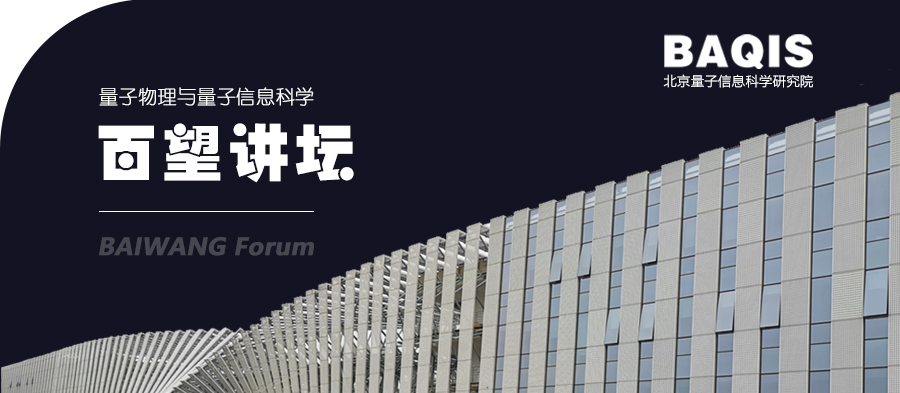
Date and Time: 12-Jan-2022 10:00 AM
Venue: BAQIS Meeting Room 320
Speaker: Prof. Chang-Pu Sun, Member of CAS, Chair Professor, Beijing Computational Science Research Center
Host: Prof. Hongqi Xu (Director of Quantum Computation Division)
Title: Majorana zero modes in superconductor-semiconductor hybrid nanowire: theory and experiments
Abstract:
The hybrid nanowire consisting of semiconductor with proximity to superconductor is expected to serve as an experimental platform to display Majorana zero modes. By rederiving its effective Kitaev model with spins, we discover a novel topological phase diagram, which assigns a more precise constraint on the magnetic field strength for the emergence of Majorana zero modes. It then turns out the effective pairing strength dressed by proximity effect exhibits a significant dependence on magnetic field, and thus the topological phase region is refined as a closed triangle in the phase diagram with chemical potential vs. Zeeman energy (which is obviously different from the open hyperbolic region known before). This prediction is confirmed again by an exact calculation of quantum transport, where the zero bias peak of 2e2/h in the differential conductance spectrum, as the necessary evidence for the Majorana zero modes, disappears when the magnetic field grows too strong. For illustrations with practical hybrid systems, in the InSb nanowire coupled to NbTiN, the accessible magnetic field range is around 0.1?1.5 T; when coupled to aluminum shell, the accessible magnetic field range should be smaller than 0.12 T. These predictions obviously clarify the current controversial issues about some experiments of Majorana zero modes with hybrid nonawire .
About the Speaker:
Professor Chang-Pu Sun, a theoretical physicist, currently is a chair professor at Beijing Computational Science Research Center (CSRC), and the Chinese Academy of Engineering Physics (CAEP). He obtained his PhD in 1992 at the Chern Institute of Mathematics, and then became a professor of physics in Northeast Normal University (1992-2011) and Institute of Theoretical Physics, Chinese Academy of Sciences (CAS). In an adjunct position he even was a Chair Professor of Theoretical Physics of Nankai University from 2003 to 2008. He was selected as an Academician of CAS in 2009, and a Fellow of TWAS (the World Academy of Sciences) in 2011. He achieved many prizes including the National Award for Natural Sciences in China, the First Order Prize for Excellence Young Scientist in Chinese Academy of Sciences, the National Prize of Science and Technology for Yang Scientists and Citation Classic Award by SCI et al. He is also honored by the National Model Employee of China.

 中文
中文 Email
Email QCloud
QCloud Log in
Log in
